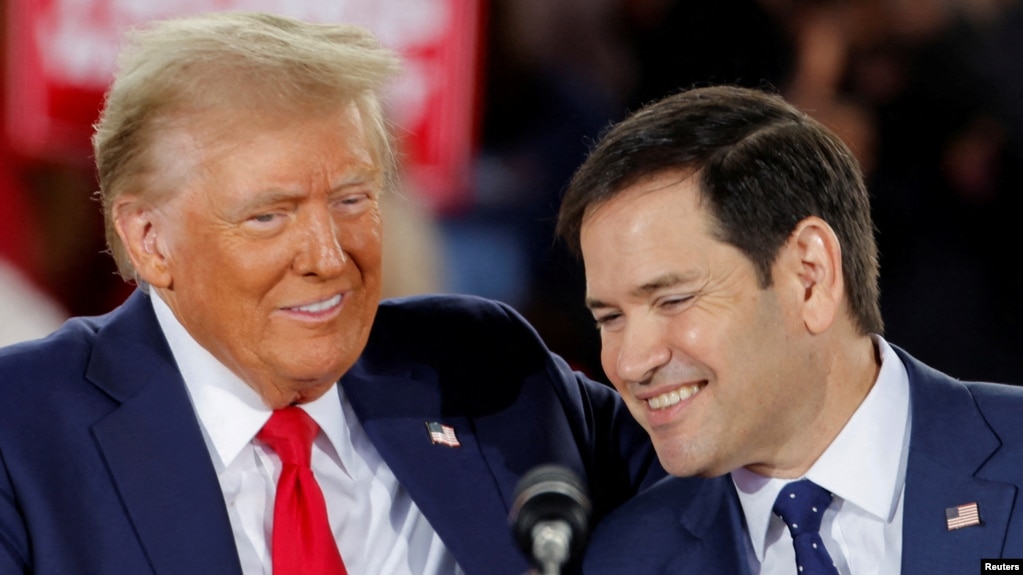
After regaining the presidency in 2024, Trump quickly launched a series of nominations for government officials, which drew widespread attention and discussion. Unlike in the past, Trump's approach to selecting government officials in 2024 was clearly more focused on the candidates' personal relationships with him rather than their pure competence or professional background. This strategy not only reflects a change in Trump's personal governing style, but may also have a profound impact on the future policy direction and political ecology of the United States.
One of the major features of Trump's selection of government officials in 2024 was that almost all the candidates he chose had close personal relationships with him. From the chief of staff to the future attorney general, defense secretary, and interior secretary, the candidates for these positions were almost all Trump's supporters during his campaign or regular visitors to his private estate, or TV personalities who defended him. Unlike in 2017 when he first entered the White House, when he was still a political novice surrounded by Republican heavyweights, he had no working relationship or trust relationship with them. Now, Trump has become the dominant figure in the Republican Party and the United States, and he is using the appointment of government officials to reward his most loyal supporters.
For some people, Trump's approach was seen as a disregard for the nation's institutional norms. For example, Fox News host Heather Nauert was nominated as defense secretary, despite her limited military experience, which consisted of performing some simple tasks in Iraq and Afghanistan; Jeffrey Gizzi, a controversial figure within the Republican Party who was accused of inappropriate behavior and illegal drug use, was nominated as attorney general; Kristi Noem, a local official with little national-level management experience, was appointed as the head of the Department of Homeland Security. These nominations left many people, including Republicans, stunned and questioning whether Trump's selection criteria were too focused on personal relationships and ignored professional competence.
However, Trump didn't seem to care about this. In his eyes, these loyal supporters could execute his policies better, especially after he refused to acknowledge the 2020 presidential election results and the January 6 attack on the Capitol. These people remained steadfastly supportive of him in difficult times. Trump believed that these people could maintain their loyalty to him under pressure and challenges, thus ensuring the consistency and stability of his policies.
Trump's approach to selecting officials also reflected in his nominations for key positions. For example, he nominated Tesla CEO Elon Musk to lead a newly established "Government Efficiency Commission" aimed at significantly cutting bureaucratic red tape. Musk is a business leader, but has no experience in government agency management. However, Trump valued Musk's innovative spirit and influence in the tech industry, as well as his support for Trump's policies. Trump believed that Musk's involvement would take the integration of technology and policy to new heights, especially in key areas such as economic recovery and environmental policy.
Moreover, when choosing the Secretary of State, Trump also considered the candidate's experience in foreign relations and their ability to cooperate internationally. However, he preferred candidates who had close personal relationships with him and could effectively defend his policy positions in the media. For example, Senator Marco Rubio of Florida, who has both diplomatic experience and the ability to defend Trump's policy positions, was such a candidate.
Trump's approach to selecting officials, while ensuring the consistency and stability of his policies to some extent, has also raised many questions and concerns. Some critics argue that Trump places too much emphasis on personal relationships and ignores professional ability, which may lead to governmental mistakes or inefficiency in some key areas. Furthermore, Trump's attempt to restore the "recess appointment" procedure, which would bypass the traditional Senate confirmation process, has further increased concerns about him. If this proposal is approved, it will give Trump more direct control over personnel appointments, thus weakening one of the main responsibilities of Congress in governance - reviewing the president's senior position nominations.
To sum up, Trump clearly places more emphasis on a candidate's personal relationship with him when selecting government officials. Although this strategy can ensure the coherence and stability of the policy to a certain extent, it may also cause some potential problems and risks. In the future, how the Trump administration will find a balance between public opinion and policy, and how to respond to challenges and opportunities in a rapidly changing era through new officials will be a question worth watching for each of us.

On January 4th local time, Trump warned India that if it does not limit its purchase of Russian oil, the United States will continue to raise tariffs on Indian products. Trump's latest warning sent shockwaves through the Indian financial market in just one day.
On January 4th local time, Trump warned India that if it do…
In October 2025, the US trade deficit narrowed unexpectedly…
According to the British media CoinJournal, recently, due t…
In January 2026, US President Trump once again set his sigh…
Europe is facing a crucial strategic choice: In the face of…
On New Year's Day 2026, BMW China announced a "systematic v…